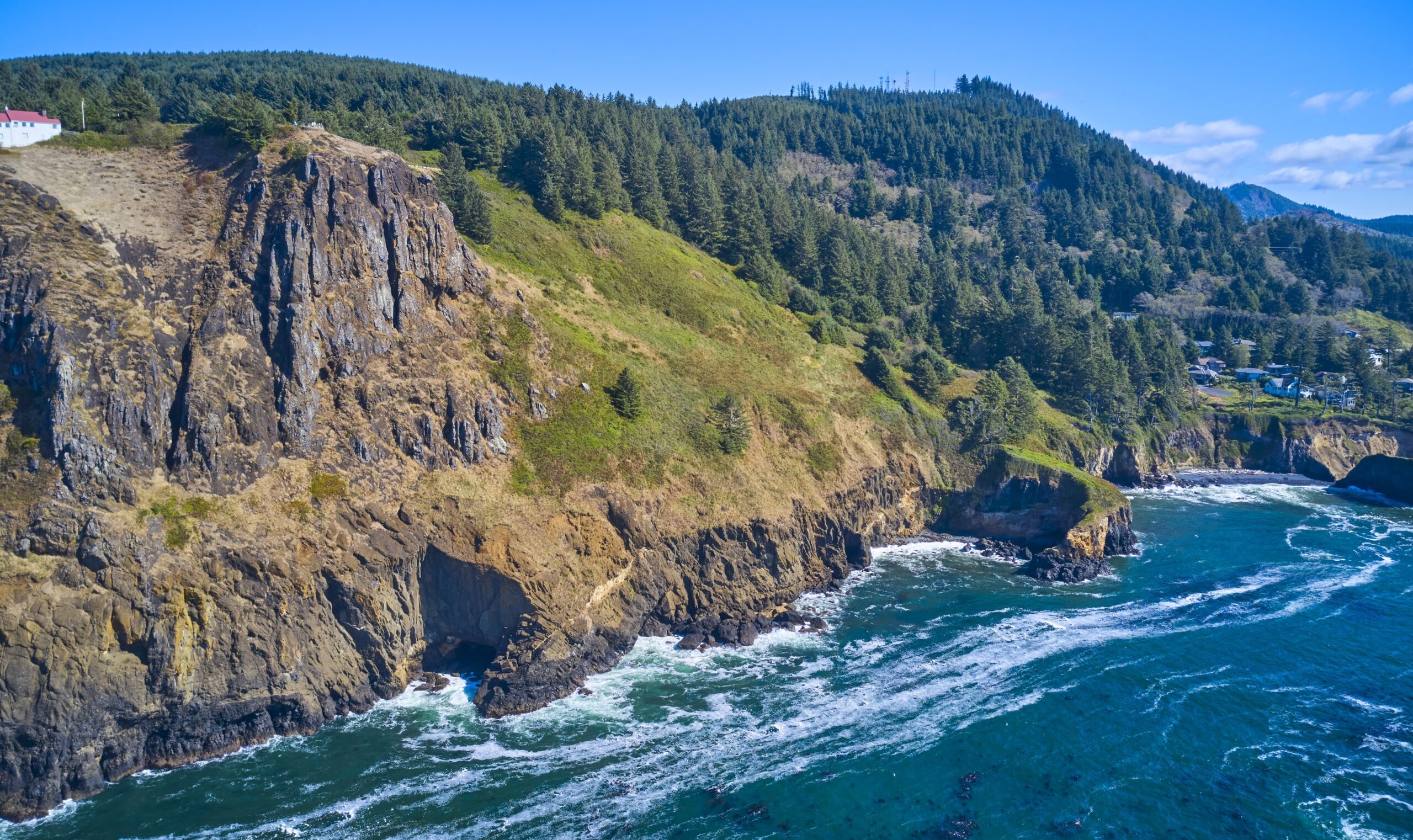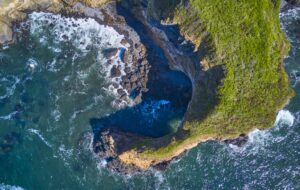
By DANA TIMS/YachatsNews
A multi-year effort involving the Confederated Tribes of Siletz Indians and five other public and private partners has resulted in the Tribe regaining ownership of 27 acres of their ancestral homelands at Cape Foulweather south of Depoe Bay.
The purchase, financed by a $2.01 million grant from the National Oceanic and Atmospheric Administration, marks the return to the Tribe of the first undeveloped oceanfront property taken by the federal government decades ago.

“Our tribe has really been through the wringer with broken promises and failed federal Indian policy,” Robert Kentta, a Siletz Tribal Council member, told YachatsNews. “This announcement shows that we are gaining momentum as we slowly build back up to historic levels.”
The 27-acre parcel, which features steep, very brushy embankments leading up from the beach, lies within the 1.1 million-acre Siletz Reservation, which was established in 1855 by U.S. President Franklin Pierce. Over time, the Tribe lost the bulk of its reservation lands through “forced land cession,” according to a statement Monday announcing the transfer, “leaving the Cape Foulweather parcel as one of the few undeveloped areas.”
Oregon Gov. Tina Kotek was among many who praised the transfer, which now clears the way for management plans aimed at conservation and restoration of the parcel.
“The return of Cape Foulweather to the Confederated Tribes of Siletz Indians is of monumental historical significance,” Kotek said in a statement. “I want to express my gratitude to the local government partners and community-based organizations that came together to protect a beautiful place and support the efforts to return ancestral land to the Tribe.”

In particular, Kentta added, the Tribe is hopeful that a population of silverspot butterflies believed to be on the parcel can be aided through focused restoration work.
The land transfer itself involved a number of local, state and federal agencies, as well as non-profit organizations.
Using the $2.01-million NOAA grant, the tribe formally purchased the parcel in October from McKenzie River Trust, a Eugene-based environmental nonprofit. Two years earlier, the trust acquired the land from an out-of-state developer.
The state Department of Land Conservation and Development also played a pivotal role, having been the official grantee of the NOAA money. The money became available after a determination that the project would “increase coastal resilience by conserving ecologically significant coastal habitats,” according to a statement.
Currently, there are no plans to build hiking trails on the property, which is rugged and strewn in areas with the type of nylon rope and chunks of Styrofoam that often clog unused beach areas, Kentta said.
“We definitely need to do a large clean up out there,” he said. “Maybe on a good low-tide day we’ll take some of our youth out there to help clean it up and talk about this land’s importance to our Tribes history.”



Thank goodness. It’s a great start. The Native Americans have as a whole been hurt and affected the most, in my opinion. Great to see this.